Planet of Lana takes the 2D side-scrolling platformer genre to a new high, one that blends art with that incredible dream you once had and go to bed some nights wishing you could revisit. It has a story that pulls at the heartstrings and reminds you that you’re alive through the feelings it evokes. You can sense the care taken to create every scene, no matter how quickly you blow through them or how often you get stuck on a puzzle, which speaks to the cautionary notes hidden within the tale it tells.
A Cat Lover’s Dream
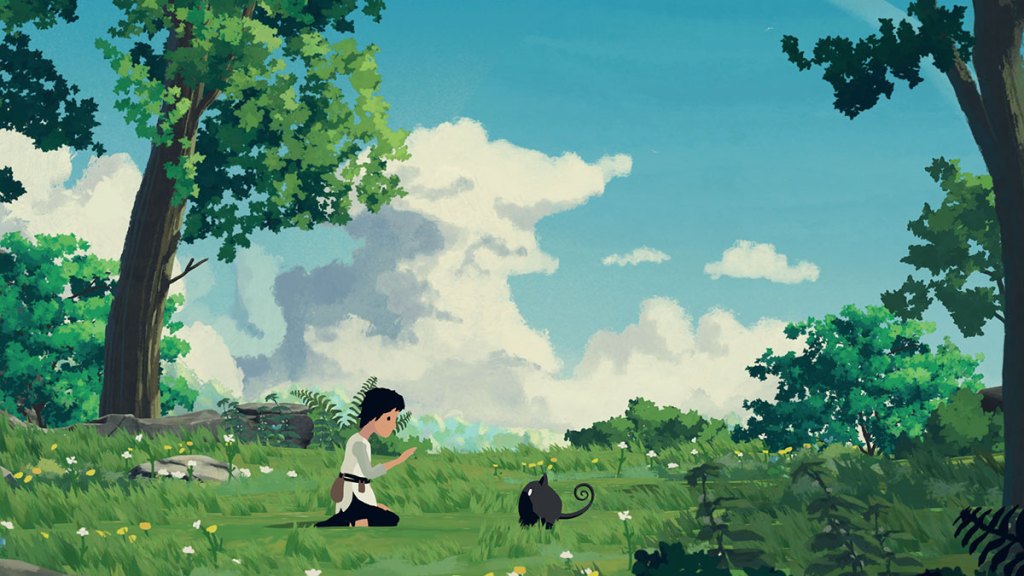
The story in Planet of Lana revolves around protagonist Lana heading out on a journey to find her sister. Hundreds of what appear to be alien machines have descended to the planet and started rounding up everyone they can see from the tribal towns and settlements on this world. It instantly gave me War of the Worlds vibes in the best way possible. The spherical design of each machine makes them look all the more menacing because of the book, movies, and TV shows that have already instilled in me that this shape is to be feared, and I’m sure you’ll feel the same.
As Lana travels to the right-hand side of the screen across miles and miles of her planet, she befriends a cat, Mui, and it’s in this partnership that Planet of Lana shines. Players can switch between each character, both of which learn new abilities as time passes, to solve the increasingly complicated puzzles thrown at players.
Mui is agile and can jump higher and further than Lana or just sit on a patch of tendrils to create a platform. Every possible interaction and ability has a purpose in most puzzles once unlocked. Challenges start small, like needing to hide in tall grass to avoid detection from a machine, but quickly escalate to using Mui as a distraction to get Lana away from the machine without it seeing her. Each new interaction is small, but the puzzles have been built and tested so carefully that they always felt stressful, making the abilities players are given so much more impactful. I never got the sense that I was safe and knew what to expect because this game is full of surprises.

Developer Wishfully Studios has been careful to use everything in the player’s toolbox in combination with each other at least once. Sometimes games don’t do this, and players can always tell because they’re the ones mastering the mechanics. Each new area or puzzle added something to Planet of Lana in a way that makes it a fuller experience. My highlights are the musical puzzles, which took me the longest to solve. They combine aspects of the most intense encounters with a quieter moment to force you to think. Discovering the solution always feels satisfying, and the musical reward is better than the open path forward.
For the most part, players will be exploring open fields, thick swamps, or abandoned towns while dodging the local wildlife and any machines searching for stragglers. Nothing is as simple as it seems, though. Lana and Mui might need to knock out a creature to prevent it from attacking them, but the puzzle will then evolve, requiring them to use the beast’s body to activate a platform. The same is true of machines, with some puzzles appearing as hide-and-seek encounters, when really, Mui needs to help Lana destroy their foe before moving on.
The game separates Lana and Mui for a time, but that only makes the hours with both seem so much better. It’s lesser when Lana’s companion isn’t around to help with the puzzles, and I developed an attachment to the tiny cat. I have a black cat in real life that follows me around my village, and Planet of Lana felt like an extension of our relationship.

Maybe I’m just a crazy cat person, but there’s so much more players will resonate with, even if they don’t love a furry feline. While it never feels like the game’s focus is to make you care about this cat and what happens to it, you can’t help but form a bond. The story has key moments that bring you together and make you thankful it’s there, and the incredibly accurate controls enhance that.
A good example of this is every instance Lana is trapped by a large creature or machine and must instruct Mui to tap a button or pop in and out of a hole to distract the enemies. This gives Lana a chance to escape, often just barely. I always ensured I gave Mui a pat after this to show that I appreciated its life-saving efforts. There’s nothing more frustrating than a partner character that doesn’t do exactly what you want when you want. Mui will stop, follow, and go where Lana tells it to without fail, and that helps make this game so much easier to sit back and enjoy.
I do have one complaint about the game’s puzzles. They’re all so good that they make the one single trial that’s a little too difficult seem even more annoying than it probably is. I spent a good hour trying to solve it but still didn’t fully understand the solution. It felt like guesswork, which is never good for a puzzle. The answer could have been broadcast better, but ultimately the payoff of the following scene does enough to make up for the frustration anyone will feel. Still, in a game where every inch feels like it’s been tested and serves a purpose, the one area that still needs some buffing is so much duller for the gleaming shine of the rest of it.
Every Frame A Painting

The world of Planet of Lana is wonderful. The visuals resemble a mix of hand-painted artwork and gorgeously rendered animations that blend so well that it often feels like playing across a canvas. I spent far too long with Lana standing on a cliff edge, looking out into the distance. I can’t help but applaud the developer for making something so amazing to look at. There’s no scene that doesn’t stand out or take your breath away because they all have that element that makes you think there is no way this experience could get any better. Spoilers, it always does.
It’s not just the beautiful moments that highlight great nature, though; there’s a dark undertone of industrial machinery that also has its place. It feels oppressive and dangerous, making the encounters in and around it all the more tense. Many of these come at the end of the game, which helps keep the roughly five-hour experience still fun and fresh even when you’re doing nothing but watching Lana run down a corridor.
Like a painting, there are layers to Planet of Lana that you can’t see at first glance — ways in which the paint and canvas have been treated or manipulated to create a specific look that peels back to show you something a little more horrifying underneath. For example, the machines’ design is in direct opposition with the nature of the world. The machines are all harsh edges and dark colors, while the world is a pure, natural beauty that doesn’t conform to any containment or harshness. It pushes environmental storytelling forward in ways I’ve not seen done often.
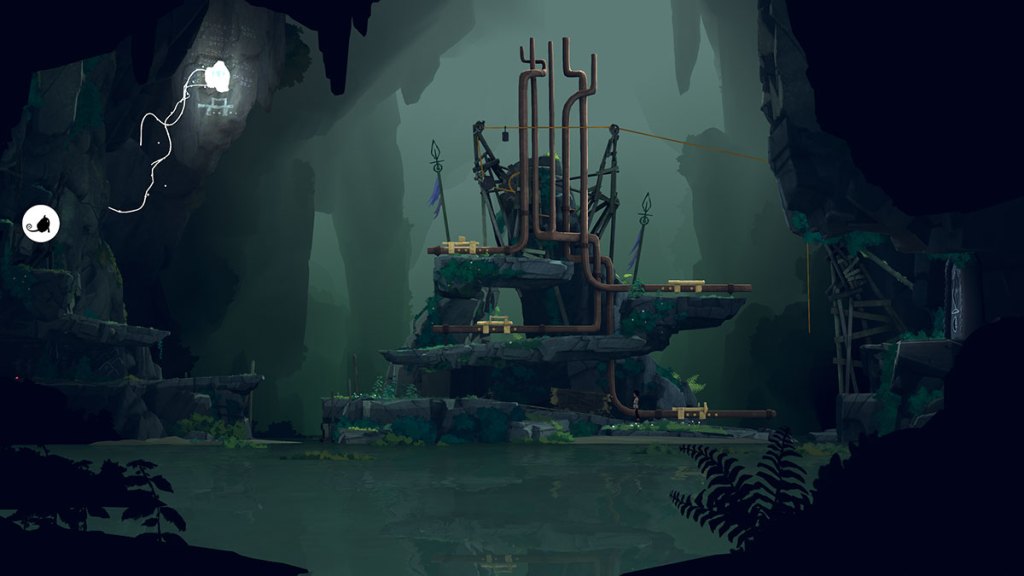
In terms of gameplay, this results in a terrifying enemy you’re never quite sure of. The machines act erratically, always searching for life to contain. Players have a toolset to use to get around them, but the movements and general uncertainty felt about technology in this world make them seem like wild animals. You’re never sure what direction they will move and how they’ll respond to certain stimuli. It’s like waiting for a switch to flick in a deer’s eyes before it bolts into the woods, except this thing isn’t going to run; it’s coming for you.
Lana and the player will discover carvings that tell a tale filling the backstory of the world they’re exploring. This can be expanded with hidden shrines that add some replay value, but I’d say the entire experience is enough to justify a second run-through. I won’t go into spoiler territory because I think this game should be experienced first-hand. Still, it’s important to note that the way cave drawings have been incorporated into the story and into puzzles made me question everything I was looking at. Suddenly, anything could help me solve a puzzle or progress, and it helped me appreciate the world so much more because I was actively paying attention to it. Too often, we can rush through games, but in Planet of Lana, it pays to take the time to absorb it.
For the most part, Planet of Lana is a fun romp across an alien world with a cute cat sidekick. It does have its darker moments, but they’re combined with music in a way that makes them feel more positive, like crescendos that bookend the chapters. Lana learns things on this journey, and you get to see her grow through these moments, showcasing the incredible sound design. For me, it’s as good as that of Horizon Forbidden West and is one of the best examples of bringing out-of-this-world music to a game in a way that fits with the gameplay. None of it is out of place, and the music will stay with you in your soul.
A Cautionary Tale

Under the surface, Planet of Lana felt like it was making a few points that could not be more relevant in today’s world. The idea of working together to live in harmony with nature is snatched from the world by cruel, heartless machines. These machines might seem alien, but they’re just doing a job. They separate Lana and her sister to give her sister the ideal life as defined by their programming. It’s not malicious; it’s just what they do.
Similarly, AI taking a writer’s work or an artist’s job, replicating a celebrity’s voice, or pulling together a fake movie trailer from the information it found online is just doing its job. The AI isn’t trying to hurt anyone, and Planet of Lana makes you see that neither is the overwhelming force of alien machines that take Lana’s sister. It’s so easy to hate a villain in a video game, but Planet of Lana forces players to feel compassion even in this area. It highlights how nothing is black and white, just shades of grey, and that we can control how out of control things get.
The game’s finale is a beautifully idyllic look at how man and machine should coexist. Think Laputa from Castle in the Sky, an enchanting world that blends flesh and harsh metal to create a utopia where neither humans nor machines are the oppressed workers. Planet of Lana is a reminder that technology can go too far, and there’s a moment that could be right now when we need to decide what the limit is. The people of Laputa gave up their technological supremacy to experience life, and Planet of Lana helps remind you that grass is out there to touch, the sky is full of wonder, and technology has its place, which isn’t always by our side.
Verdict
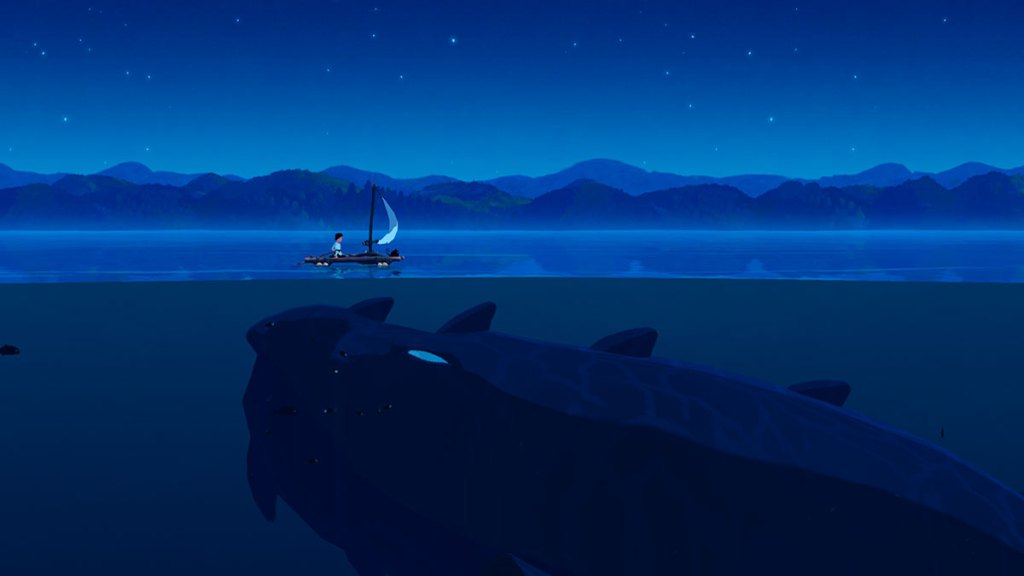
There is so much to love in Planet of Lana. The visuals, the audio design, and the gameplay combine to create something that feels like you just slot into it. This is a game that everyone was born to play. It’s not overly complicated, except for one puzzle, and it doesn’t try to cram lots of high-sci-fi concepts down your throat. It just exists and welcomes you to play in a way that feels natural and you never truly want to leave behind.
Final Score:
8/ 10
| + Stunning visuals that make you stop and stare at every scene. | |
| + Incredibly well-thought-out puzzles that challenge players without being frustrating. | |
| + Tight controls that don’t detract from gameplay. | |
| – One frustrating puzzle almost ruins the experience. | |
| – Could be a little longer to expand the run time, particularly in the latter half. | |
| – One more collectible would give players even more of a reason to pause and explore. |
Gamepur team used the Xbox Game Pass version of Planet of Lana for the purpose of this review.

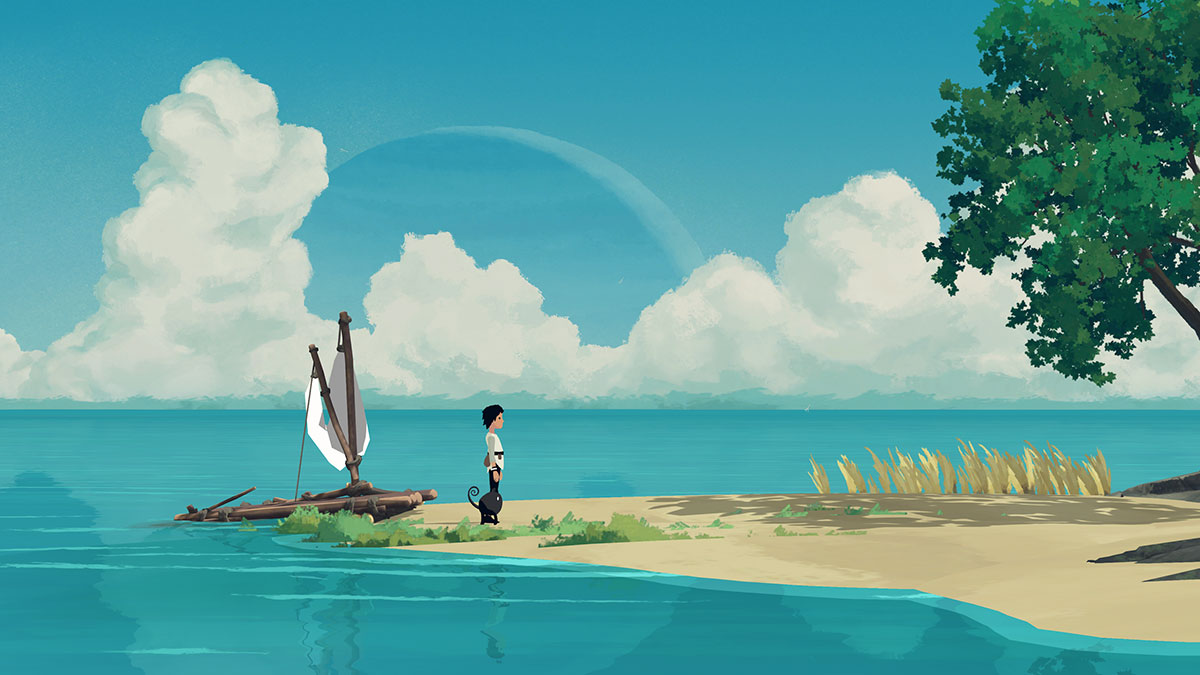

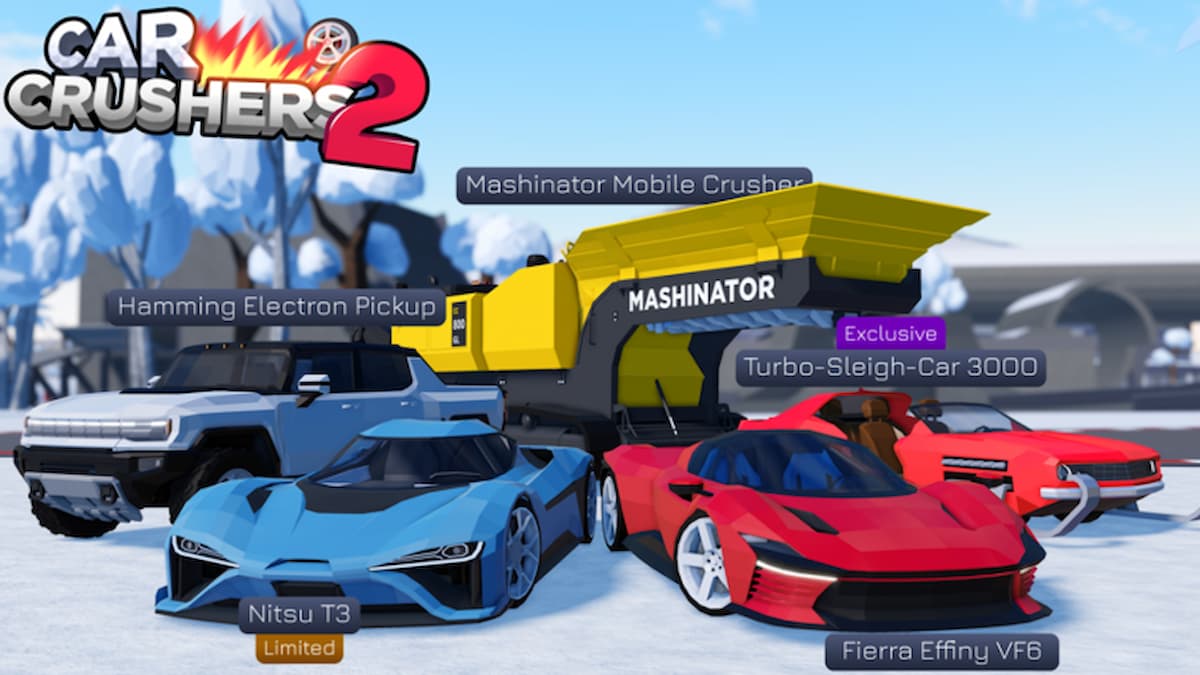

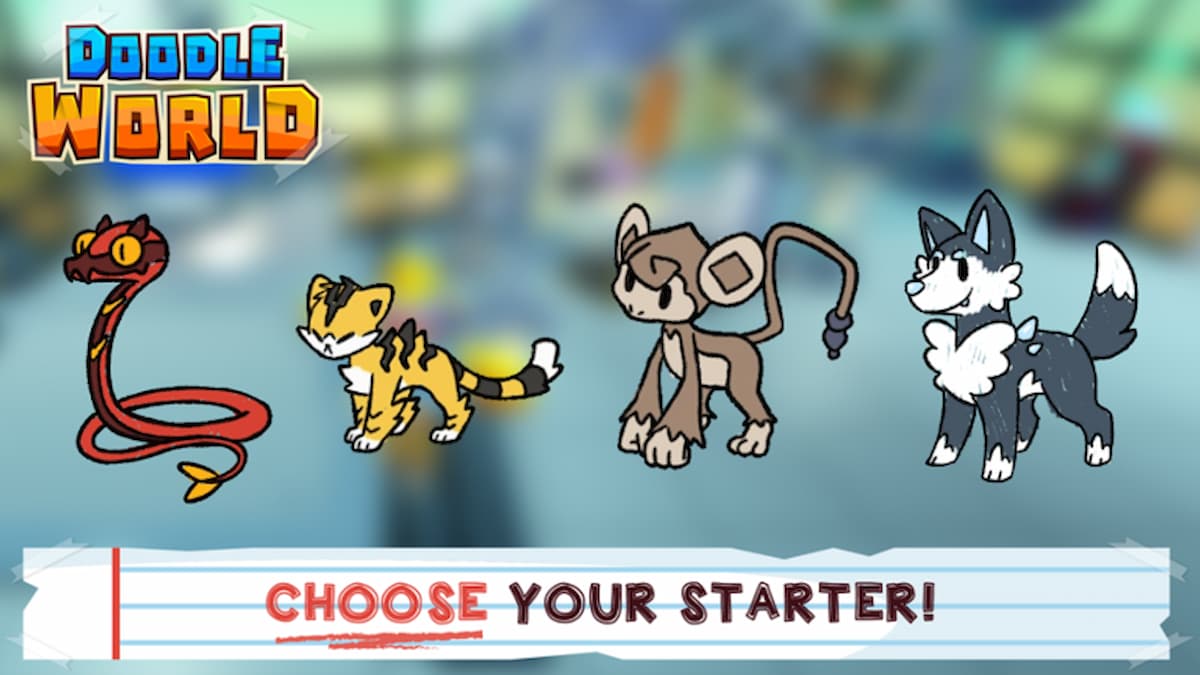
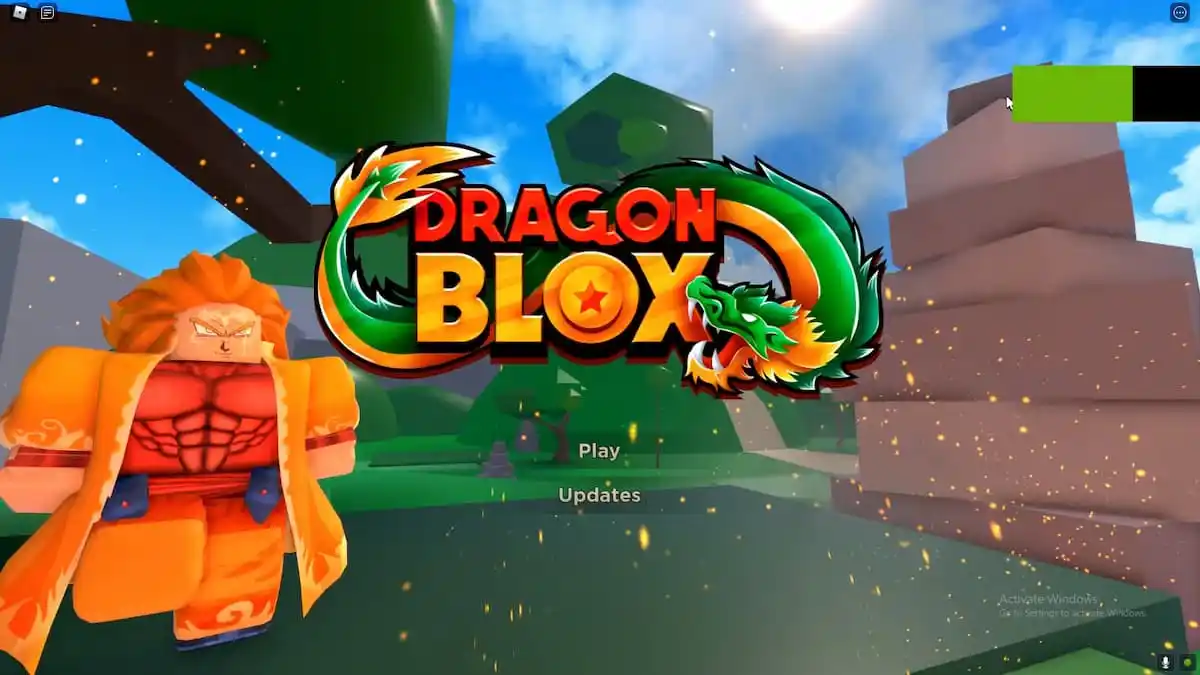
Published: Jun 15, 2023 02:23 pm